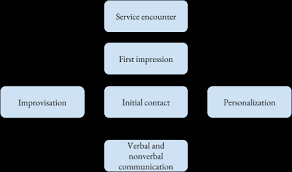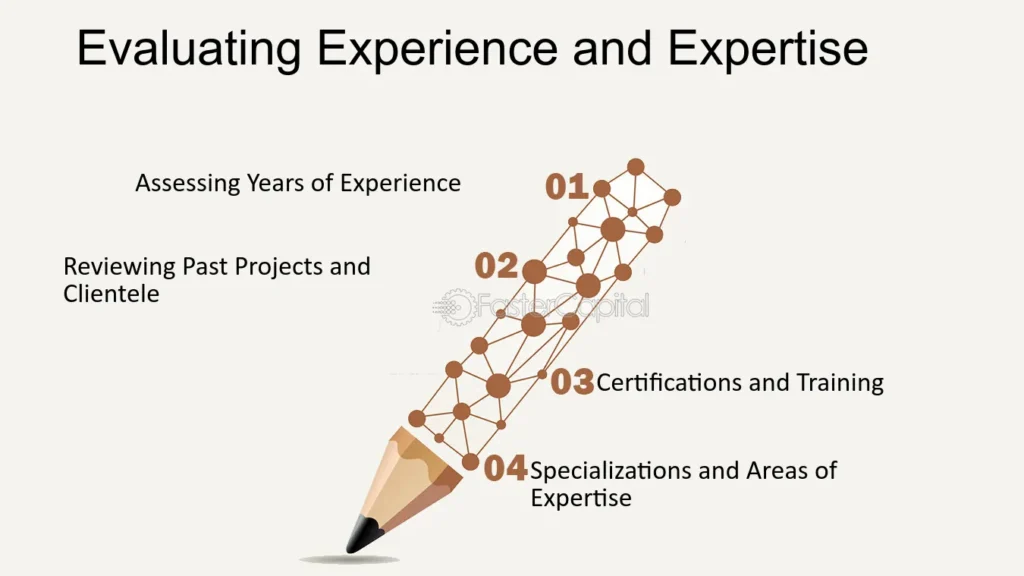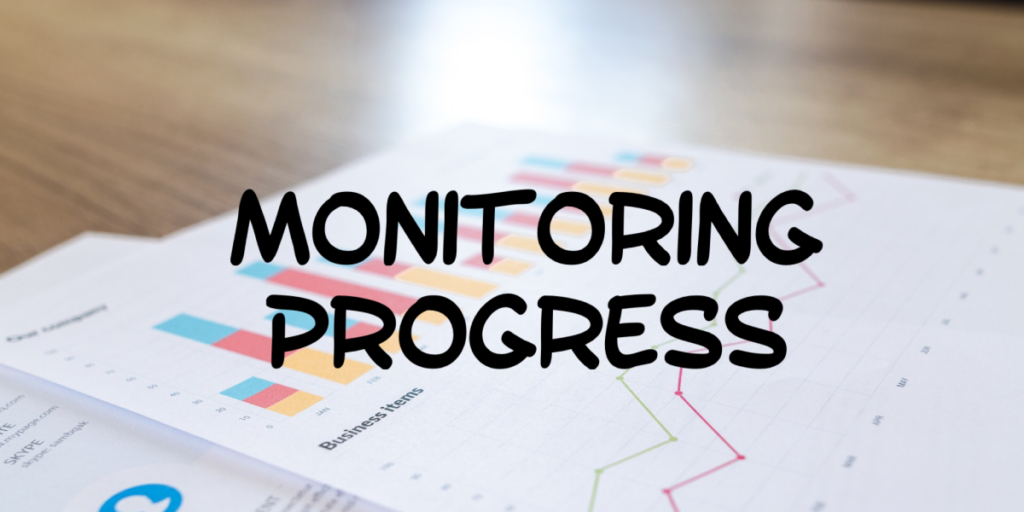
Hiring the Perfect Contractor:
Hiring the right contractor can be a daunting task, but it’s crucial to ensure your project is completed on time, within budget, and to your satisfaction. Here, we unveil 10 insider secrets that will help you hire the perfect contractor. Secret #7 will truly surprise you!
Table of Contents
Introduction
Hiring the Perfect Contractor is a critical step in any construction or renovation project. The right contractor can make the process smooth and efficient, while the wrong one can lead to delays, increased costs, and frustration. In this article, we will reveal 10 insider secrets to hiring the perfect contractor. These secrets will help you navigate the process with confidence, ensuring you select a contractor who will deliver high-quality work on time and within budget. Prepare to be surprised by secret #7, a tactic that few homeowners consider but can make a significant difference. | Hiring the Perfect Contractor
Understanding Your Project Needs | Hiring the Perfect Contractor
Defining the Scope of Your Project
Before you start looking for a contractor, it’s essential to have a clear understanding of your project’s scope. Defining the specific tasks and goals you want to achieve is the first step toward successful project completion. This includes identifying the type of work needed, the materials you prefer, and the overall vision for the project. A well-defined scope will help you communicate your expectations clearly to potential contractors and avoid misunderstandings. | Hiring the Perfect Contractor
Determining Your Budget and Timeline
Set a realistic budget for your project, considering both labor and materials. Knowing how much you are willing to spend helps you filter out contractors who may not fit your financial plan. It’s also important to establish a timeline, noting any deadlines or time constraints. Understanding your budget and timeline will help you find a contractor who can work within these parameters and avoid potential financial strain or delays. | Hiring the Perfect Contractor
Researching Contractors | Hiring the Perfect Contractor

Where to Find Reliable Contractors
Reliable contractors can be found through various sources. Recommendations from friends, family, and colleagues are often trustworthy. These personal referrals are valuable because they come from people you know and trust. Online platforms like Angie’s List, HomeAdvisor, and Houzz also provide reviews and ratings for local contractors, helping you find well-reviewed professionals. Additionally, local building supply stores or trade associations can offer referrals to reputable contractors who have a proven track record in your community. | Hiring the Perfect Contractor
Checking Credentials and Licenses
Ensure that any contractor you’re considering is properly licensed and certified. Licensing requirements vary by state and locality, so verify that the contractor meets the necessary criteria in your area. Licensed contractors are more likely to adhere to industry standards and regulations, providing you with added peace of mind about their qualifications and professionalism. | Hiring the Perfect Contractor
Reading Reviews and Testimonials
Online reviews and testimonials can provide valuable insights into a contractor’s reliability, quality of work, and professionalism. Look for patterns in the feedback – consistent positive reviews are a good sign, while repeated complaints about similar issues may indicate potential problems. Checking these reviews helps you understand the experiences of other clients and make an informed decision. | Hiring the Perfect Contractor
Initial Contact and Communication | Hiring the Perfect Contractor

Preparing a List of Questions for the Contractor
When you first contact a contractor, have a list of questions ready. Inquire about their experience with similar projects, availability, and typical project timelines. Ask about their approach to handling unexpected challenges and changes in project scope. Being prepared with questions shows that you are serious about your project and helps you gather the information needed to make a decision. | Hiring the Perfect Contractor
Evaluating the Contractor’s Communication Skills
Effective communication is crucial for a successful project. Pay attention to how the contractor responds to your inquiries. Are they clear and concise? Do they provide detailed answers? Good communication skills are indicative of a contractor who will keep you informed and involved throughout the project. Effective and transparent communication reduces the likelihood of misunderstandings and ensures alignment between both parties. | Hiring the Perfect Contractor
Understanding the Importance of Clear Communication
Clear communication ensures that both you and the contractor have a mutual understanding of the project’s expectations and requirements. It helps prevent misunderstandings, delays, and conflicts, contributing to a smoother project execution. Establishing clear lines of communication from the start can significantly impact the overall success of your project. | Hiring the Perfect Contractor
Verifying Credentials | Hiring the Perfect Contractor

Checking Licenses and Certifications
Verify the contractor’s licenses and certifications to ensure they are qualified for the job. This step helps protect you from unqualified or unscrupulous contractors who may not meet industry standards. Ensuring that the contractor holds the necessary licenses and certifications demonstrates their commitment to professionalism and adherence to regulations. | Hiring the Perfect Contractor
Ensuring Insurance Coverage
Confirm that the contractor has adequate insurance coverage, including liability and workers’ compensation insurance. This protects you from potential liability if an accident occurs on your property during the project. Proper insurance coverage is crucial for safeguarding your interests and providing financial protection in case of unforeseen incidents. | Hiring the Perfect Contractor
Contacting Past Clients for References
Ask previous clients for references and then make sure to follow up with them. Ask about their overall experience, the quality of work, and any issues they encountered. Honest feedback from previous clients can provide a clear picture of what to expect. Speaking directly with past clients gives you firsthand insight into the contractor’s performance and reliability. | Hiring the Perfect Contractor
Assessing Experience and Expertise | Hiring the Perfect Contractor

Reviewing the Contractor’s Portfolio
Review the contractor’s portfolio thoroughly to evaluate their level of experience and expertise. Look for projects similar to yours and evaluate the quality of work. A diverse portfolio indicates a well-rounded contractor capable of handling various types of projects. Reviewing their previous work helps you gauge their capabilities and suitability for your project. | Hiring the Perfect Contractor
Understanding Their Specialization
Some contractors specialize in specific types of work, such as kitchen remodels, bathroom renovations, or roofing. Ensure that the contractor you choose has relevant experience and expertise in the specific area of your project. A specialized contractor is more likely to deliver high-quality results tailored to your project’s unique requirements. | Hiring the Perfect Contractor
Comparing Experience Levels Among Contractors
Compare the experience levels of different contractors. While a more experienced contractor may come at a higher cost, their expertise can lead to better results and fewer issues during the project. Balancing experience with budget considerations is essential to finding the right contractor for your needs. | Hiring the Perfect Contractor
Requesting Detailed Estimates | Hiring the Perfect Contractor
Importance of Getting Multiple Quotes
Getting quotes from various contractors enables you to assess both pricing and services before making a decision. This helps you make an informed decision and ensures you get the best value for your money. Getting several quotes gives you a better understanding of the market rates and prevents you from overpaying. | Hiring the Perfect Contractor
Understanding What Should Be Included in the Estimate
A detailed estimate should include the cost of materials, labor, permits, and any other expenses. It should also outline the scope of work, project timeline, and payment schedule. A comprehensive estimate helps prevent unexpected costs and ensures transparency. Knowing what is included in the estimate allows you to budget more accurately and avoid surprises. | Hiring the Perfect Contractor
Comparing Estimates from Different Contractors
Carefully compare estimates from different contractors. Look for discrepancies and ask for clarification if needed. Consider both the cost and the quality of services offered to determine the best fit for your project. Comparing estimates allows you to weigh the pros and cons of each contractor and select the one that offers the best balance of cost, quality, and service. | Hiring the Perfect Contractor
Secret #7: Conducting a Trial Run | Hiring the Perfect Contractor
Explanation of a Trial Run
A trial run involves hiring the contractor for a small project or task before committing to a larger project. This allows you to evaluate their performance, work quality, and reliability without a significant investment. Conducting a trial run provides valuable insights into how the contractor operates and handles projects. | Hiring the Perfect Contractor
How to Arrange a Small Project or Task
Choose a smaller, manageable project that the contractor can complete within a short period. This could be a minor repair, a small renovation, or any task relevant to the larger project. Clearly define the scope, expectations, and timeline for the trial run. Arranging a trial run allows you to assess the contractor’s capabilities and determine if they are a good fit for your larger project. | Hiring the Perfect Contractor
Evaluating the Contractor’s Performance During the Trial
During the trial run, pay close attention to the contractor’s punctuality, communication, and quality of work. Assess how they handle any issues that arise and their adherence to the agreed timeline and budget. Evaluating their performance during the trial helps you make an informed decision about whether to hire them for the larger project. | Hiring the Perfect Contractor
Negotiating Terms and Contracts | Hiring the Perfect Contractor
Key Elements to Include in a Contract
A well-drafted contract should include the project scope, detailed costs, payment schedule, timeline, and any warranties or guarantees. It should also specify how changes and disputes will be handled. Including these elements ensures clarity and protects both parties. A comprehensive contract sets clear expectations and provides a framework for managing the project. | Hiring the Perfect Contractor
Negotiating Payment Terms
Negotiate payment terms that align with project milestones and progress. Avoid paying a large upfront sum; instead, opt for payments tied to specific milestones or project phases. This incentivizes the contractor to stay on schedule and maintain quality standards. Negotiating fair payment terms helps manage cash flow and ensures the contractor is motivated to complete the project successfully. | Hiring the Perfect Contractor
Setting Clear Milestones and Deadlines
Establish clear milestones and deadlines for the project. This helps track progress and ensures timely completion. Clearly defined milestones allow for regular assessments of the project’s status and quality. Setting milestones and deadlines helps keep the project on track and provides opportunities to address any issues promptly. | Hiring the Perfect Contractor
Monitoring Progress | Hiring the Perfect Contractor

Regular Check-Ins and Updates
Schedule regular check-ins with the contractor to monitor progress and address any concerns. Frequent communication helps identify and resolve issues early, ensuring the project stays on track. Regular updates keep you informed about the project’s status and allow for timely interventions if needed. | Hiring the Perfect Contractor
Handling Changes and Unexpected Issues
Be prepared for changes and unexpected issues that may arise during the project. Work with the contractor to find solutions and adjust the project plan as necessary. Flexibility and effective problem-solving are key to managing changes and ensuring project continuity. Addressing changes and issues promptly helps minimize disruptions and keeps the project moving forward. | Hiring the Perfect Contractor
Ensuring Quality Control Throughout the Project
Implement quality control measures to ensure the work meets your standards. This can include regular inspections, reviewing completed tasks, and verifying that the materials used are of high quality. Quality control measures help maintain the project’s integrity and ensure that the final results meet your expectations. | Hiring the Perfect Contractor
Finalizing the Project | Hiring the Perfect Contractor
Conducting a Final Walkthrough
Before the project is considered complete, conduct a final walkthrough with the contractor. Review all work and identify any areas that need touch-ups or adjustments. A thorough walkthrough ensures that everything is completed to your satisfaction. Addressing any remaining issues before finalizing the project helps ensure a satisfactory outcome. | Hiring the Perfect Contractor
Addressing Any Remaining Issues or Touch-Ups
Discuss any remaining issues or touch-ups with the contractor and ensure they are resolved promptly. This step is crucial for achieving a flawless finish and ensuring you are happy with the results. Addressing final issues ensures the project is truly complete and meets your expectations. | Hiring the Perfect Contractor
Ensuring All Work Is Completed to Your Satisfaction
Confirm that all work has been completed to your satisfaction before making the final payment. This ensures that the project is truly complete and meets your expectations. Ensuring all work is completed satisfactorily provides peace of mind and marks the successful completion of the project. | Hiring the Perfect Contractor
Final Thoughts and Recommendations | Hiring the Perfect Contractor
Recap the 10 secrets to hiring the perfect contractor and emphasize the importance of careful planning, research, and communication. Highlight how each secret contributes to finding a reliable and competent contractor. By following these insider secrets, you can ensure a successful project that meets your expectations and is completed on time and within budget. Remember, conducting a trial run (secret #7) can be a game-changer in making the right choice. Take the time to verify credentials, assess experience, and negotiate clear terms to set your project up for success. With the right contractor, your project can be a smooth and rewarding experience. | Hiring the Perfect Contractor
FAQ
How do I find a reliable contractor?
Finding a reliable contractor involves asking for recommendations from friends, family, or colleagues, checking online reviews and ratings, and verifying licenses and certifications. Personal referrals and thorough research can help you identify trustworthy professionals.
What should be included in a contractor’s estimate?
A contractor’s estimate should include the cost of materials, labor, permits, and any other expenses. It should also outline the project scope, timeline, and payment schedule. A detailed estimate ensures transparency and helps you budget accurately.
Why is it important to check a contractor’s references?
Checking a contractor’s references allows you to gather firsthand feedback about their performance, reliability, and quality of work. Speaking with past clients provides valuable insights and helps you make an informed decision.
How might I guarantee transparent communication with my contractor?
Ensure clear communication by establishing regular check-ins, setting clear expectations, and maintaining open lines of communication. Clear and efficient communication aids in averting misinterpretations and maintaining project alignment.
What is a trial run and why is it important?
A trial run involves hiring the contractor for a small project or task before committing to a larger project. It allows you to evaluate their performance, work quality, and reliability. Conducting a trial run helps you make a more informed decision about hiring the contractor for the main project.
What should be included in a contractor’s contract?
A contractor’s contract should include the project scope, detailed costs, payment schedule, timeline, warranties or guarantees, and terms for handling changes and disputes. A comprehensive contract ensures clarity and protects both parties.
What methods can I use to track the advancement of my project?
Monitor progress by scheduling regular check-ins with the contractor, reviewing completed tasks, and implementing quality control measures. Regular updates and inspections help ensure the project stays on track and meets your standards.





